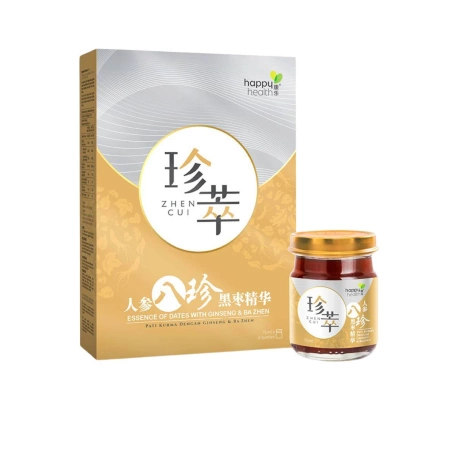Hormonal Imbalance: Understanding and Managing Irregular Menstruation

Hormonal imbalance is a complex issue that profoundly affects women's reproductive health, often leading to irregular menstruation and various health complications. Understanding the causes, symptoms, and effective management methods is crucial for maintaining a healthy menstrual cycle. This article aims to provide a comprehensive exploration of hormonal imbalance, its impact on the menstrual cycle, and detailed strategies for management.
Hormonal Imbalance and Its Impact on the Menstrual Cycle
The menstrual cycle is a finely orchestrated process regulated by a delicate balance of hormones, primarily estrogen and progesterone. Any disruption in this balance can result in irregular periods, characterized by changes in cycle length, flow, and associated symptoms. Hormonal imbalance can manifest as shorter or longer cycles, delayed or early periods, and variations in menstrual flow. These changes can significantly impact a woman's physical comfort, emotional well-being, and overall quality of life.
Symptoms of Hormonal Imbalance
Recognizing the symptoms of hormonal imbalance is essential for early intervention and effective management. In addition to irregular periods, women may experience a range of symptoms:
Changes in Menstrual Flow
Hormonal imbalances can lead to variations in menstrual flow, with some experiencing heavier or lighter periods than usual.
Mood Swings
Fluctuations in hormone levels can affect neurotransmitters in the brain, leading to mood swings, irritability, anxiety, or even depression.
Skin Issues
Hormonal imbalances can contribute to acne breakouts due to increased sebum production.
Weight Changes
Hormonal fluctuations can disrupt metabolism, leading to weight gain, difficulty in losing weight, or fluctuations in body weight.
Hair Loss
Changes in hormone levels can affect the hair growth cycle, resulting in hair thinning, excessive shedding, or changes in hair texture.
Fatigue
Hormonal fluctuations can disrupt sleep patterns, energy levels, and overall vitality, leading to fatigue, lethargy, and decreased motivation.
Causes of Hormonal Imbalance
Several factors contribute to hormonal imbalance:
Stress
High levels of stress trigger the release of cortisol, the stress hormone, which can disrupt the balance of estrogen and progesterone.
Poor Diet
A diet lacking essential nutrients can affect hormone levels. Processed foods high in refined sugars, unhealthy fats, and low in vitamins and minerals can exacerbate hormonal imbalance.
Lifestyle Factors
Lack of regular exercise, poor sleep habits, and excessive alcohol or caffeine intake can disrupt hormone balance and negatively impact overall health.
Medical Conditions
Conditions such as Polycystic Ovary Syndrome (PCOS), thyroid disorders, insulin resistance, or diabetes can lead to hormonal imbalance, affecting ovulation, hormone production, and menstrual regularity.
Methods to Manage Hormonal Imbalance
Effective management of hormonal imbalance involves a holistic approach:
Dietary Adjustments
A balanced diet rich in fruits, vegetables, whole grains, and lean proteins provides essential nutrients necessary for hormone production and regulation. Foods rich in omega-3 fatty acids, such as fatty fish, flaxseeds, chia seeds, and walnuts, can also help maintain hormonal balance and reduce inflammation in the body.
Lifestyle Changes
Regular exercise is crucial for hormone regulation as it helps reduce stress, improve insulin sensitivity, and promote overall well-being. Stress management techniques such as yoga, meditation, deep breathing exercises, or mindfulness practices can also be beneficial. Prioritizing adequate sleep, aiming for 7-9 hours per night, is essential for hormone balance, cellular repair, and overall health.
Supplementary Therapies
Natural supplements like evening primrose oil, vitamin D, magnesium, or herbal remedies can help regulate hormones and alleviate symptoms. Evening primrose oil contains gamma-linolenic acid (GLA), which can help balance hormone levels and reduce inflammation. However, it's crucial to consult a healthcare provider before starting any new supplements, especially if you have underlying medical conditions or are taking other medications.
Medical Intervention
In severe cases or when lifestyle modifications and natural remedies are not sufficient, medical intervention may be necessary. Hormone therapy or medications prescribed by healthcare providers, such as oral contraceptives, hormone replacement therapy (HRT), or medications to treat underlying conditions like PCOS or thyroid disorders, can help restore hormone balance and alleviate symptoms.
Preventive Measures
Preventive measures play a vital role in maintaining hormonal balance:
Maintain a Healthy Weight
Achieving and maintaining a healthy weight through a balanced diet and regular exercise is essential for hormone balance. Excess body fat, especially around the abdomen, can lead to insulin resistance, inflammation, and hormonal imbalances.
Stress Management
Prioritize stress management techniques such as mindfulness, meditation, journaling, spending time in nature, or engaging in hobbies and activities you enjoy. Regular exercise, adequate sleep, and social support can also help buffer the effects of stress on hormone balance.
Limit Caffeine and Alcohol
Excessive intake of caffeine and alcohol can disrupt hormone production and metabolism. Limiting caffeine to 1-2 cups of coffee per day and moderating alcohol consumption can support hormone balance and overall health.
Regular Exercise
Engage in regular physical activity, aiming for at least 150 minutes of moderate-intensity exercise or 75 minutes of vigorous-intensity exercise per week. Incorporate a variety of activities such as cardio, strength training, yoga, or Pilates to support overall health and hormone balance.
Regular Check-ups
Schedule regular health check-ups with your healthcare provider to monitor hormone levels, assess overall health, and address any concerns or symptoms promptly.
FAQs
How can you determine if irregular periods are caused by hormonal imbalance?
Irregular periods combined with other symptoms such as mood swings, acne, weight changes, or fatigue may indicate hormonal imbalance. Consult a healthcare provider for evaluation and diagnosis.
Can improving lifestyle help adjust hormones?
Yes, adopting a healthy lifestyle including a balanced diet, regular exercise, stress management, and adequate sleep can positively influence hormone balance and overall health.
What foods help regulate hormones?
Foods rich in omega-3 fatty acids, fiber, antioxidants, and essential nutrients such as fruits, vegetables, fatty fish, nuts, seeds, whole grains, and lean proteins can support hormone balance and overall well-being.
How does irregular menstruation affect fertility?
Irregular menstruation may indicate underlying hormonal issues that can affect ovulation and fertility. However, with proper treatment, lifestyle modifications, and management of underlying conditions, fertility can usually be restored.
What methods does BaiZiGui provide for regulating hormones?
BaiZiGui offers various traditional Chinese medicine (TCM) methods for regulating hormonal imbalance, including herbal formulas, acupuncture, moxibustion, and dietary recommendations. These methods aim to restore balance to the body's energy (qi) and blood, improve organ function, and alleviate symptoms associated with hormonal imbalance.
Ba Zhen
A traditional Chinese herbal formula composed of eight precious herbs, including ginseng, astragalus, and angelica root. It nourishes qi, strengthens the spleen and stomach, tonifies blood, and regulates hormone levels.
Herbal Soup Packs
Boiling various medicinal herbs to create a tonic soup, including ingredients such as astragalus, white Atractylodes, wolfberries, red dates, and dried longan. These soups help tonify qi and blood, regulate the endocrine system, and support overall health and vitality.
Moxibustion
A TCM technique involving the burning of moxa (dried mugwort) on specific acupuncture points or areas of the body to warm and invigorate the flow of qi and blood, balance yin and yang, and promote hormone regulation.
Herbal Bath Packs
Made from a combination of medicinal herbs, these packs are added to bathwater to facilitate absorption of herbal properties through the skin. Ingredients such as angelica, Ligusticum chuanxiong, peony root, and ginger help promote blood circulation, alleviate menstrual cramps, and balance hormone levels.
Maintaining a healthy menstrual cycle is essential for women's overall health, fertility, and well-being. By understanding the causes, symptoms, and management methods of hormonal imbalance, women can take proactive steps to effectively manage their menstrual cycles and improve their quality of life. Through a combination of dietary adjustments, lifestyle changes, natural remedies, and medical interventions when necessary, women can achieve hormonal balance and ensure optimal reproductive health for years to come.

 Bahasa melayu
Bahasa melayu 中文
中文

























